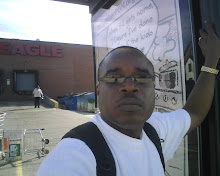My interest in chronic natural disasters particularly hurricane began with a personal experience in 1979. August, 29, Hurricane David at 120 mph crossed over Dominica. It killed over 40 people and left over 80% of the population homeless. My home lost its roof so did that of my grandparents and neighbors. We lost everything. the following week we got hit again by Hurricane Allen. I remember standing over the beaten landscape, a hopelessness punctuated the air. A compelling sense of resignation, it seems, had taken over. We did not know where to start or even how to start. The task looked overwhelming. If was impossible to get to the outside world. Telecommunications was decimated. Fred White using a ham radio make first contact with the outside world. Every plant it seems was stripped of every leaf. The hills looked as if someone had torched them. Life looked impossible. It was by day three we recognize that we were on our own. Once that kicked in, we started putting the pieces of our lives together. I was entering my final year of high school. I lost my books and clothes. A a nation, it took us 18 months to finally have electricity restored. We spent two years on aid and food ration because the following year, Hurricane Fredrick destroyed the entire banana industry. We had lost our economic mainstay, again.
It took me four (4)months to get back into school. Our school building was used as a hurricane shelter. School administrators treated us as if nothing had happened. Within two (2)weeks we had an examination to determine if we would be allowed to write the life altering final examinations administered by the University of Cambridge. I failed woefully, studying by candlelight. By the end of the second term (semester)I had another exam to determine if I would graduate, again I failed. I could not reconcile how I came from the top two in class to this. It was the same cohort of students. So I did not make it to graduation (graduation for us is simply a right of passage. It has no currency) but I focused on the all important University of Cambridge final examination, which I passed.
It was not until I came to the University of Pittsburgh in 1999 and I was researching for an independent study on children and schooling in the aftermath of hurricanes that I finally came face to face with my experience. Since no one had done any work in the area, I depended on online sources, reports and briefs from news and relief agencies. I found that schools were disrupted for up to six (6) months while they were used as shelters. Other were destroyed and had to be repaired or rebuilt completely and that could take months. parens, teachers and freinds had died. I also discovered the long lasting effect of Post-traumatic Stress Disorder. As I researched and wrote, I remember stumbling across an article 'The Forgotten People of Disaster,' written after hurricane Mitch devastated Central America in 1998. As I read the experiences of children, for the first time, I came face to face with mine and I simply lost it. I just broke down and wept as I remembered, how I struggled alone to piece my life together. It was my final year of high school and so much depended on that year and there was no support as I came to terms with the experience. Since then, we have had many hurricanes, none like David but each time one of these comes; the fears, the stress, the apprehension of that first experience are relived, several times a year.
From that day, I decided to give children in areas of chronic disasters a voice and a face. They are 'The forgotten People of Disaster." They are the silent sufferers and endure multiple afflictions - personally and educationally. My work starts therefore from understanding chronic disasters. While the mainstream schools has focused on disasters as acute events, I focus on disasters as chronic events and the persistent debilitation and recurring exposure require different approaches theoretically and conceptually. I know I can make a difference for children and for their school as we work with them to reconstruct their lives as they reconstruct their schools and communities after disasters.
Monday, September 29, 2008
Subscribe to:
Post Comments (Atom)

No comments:
Post a Comment